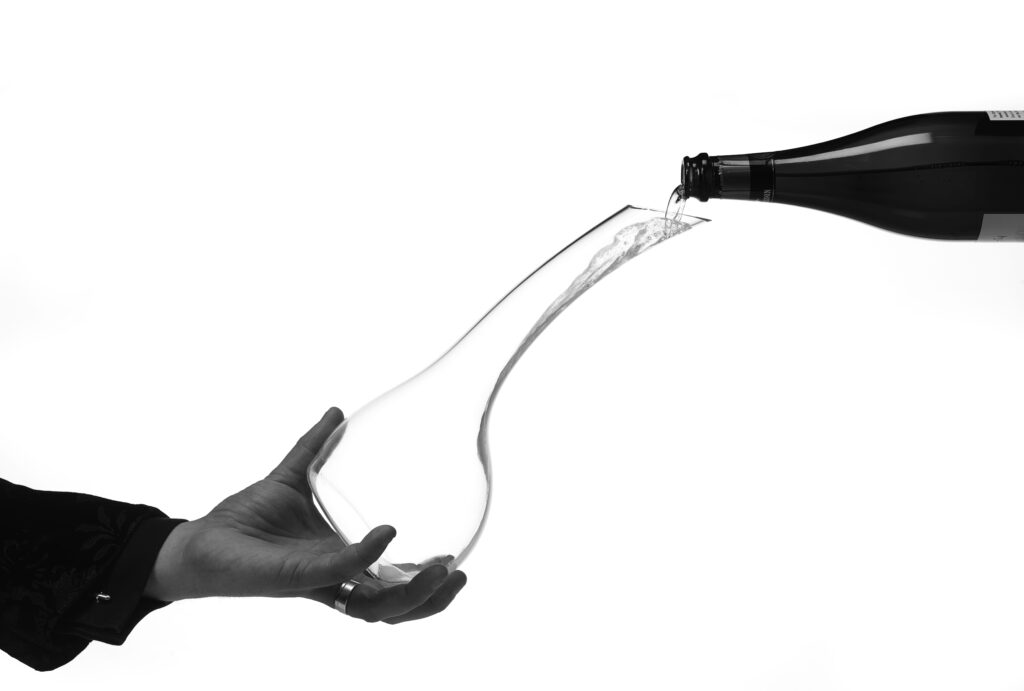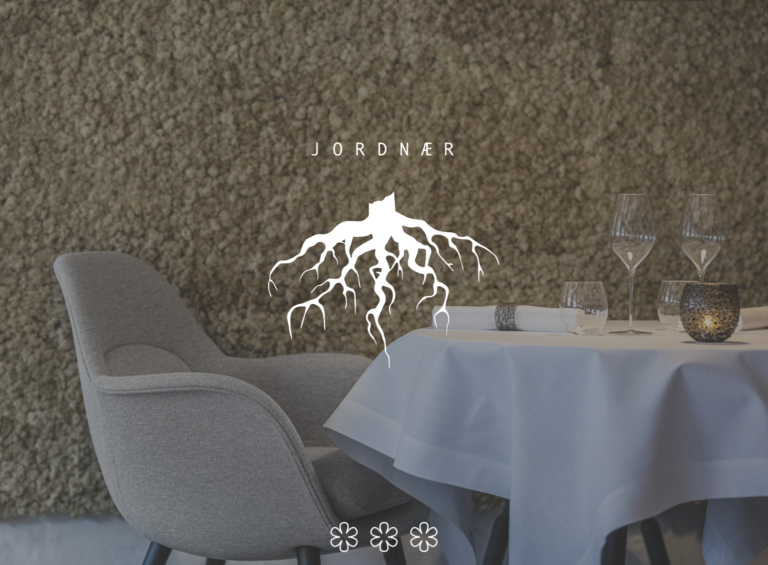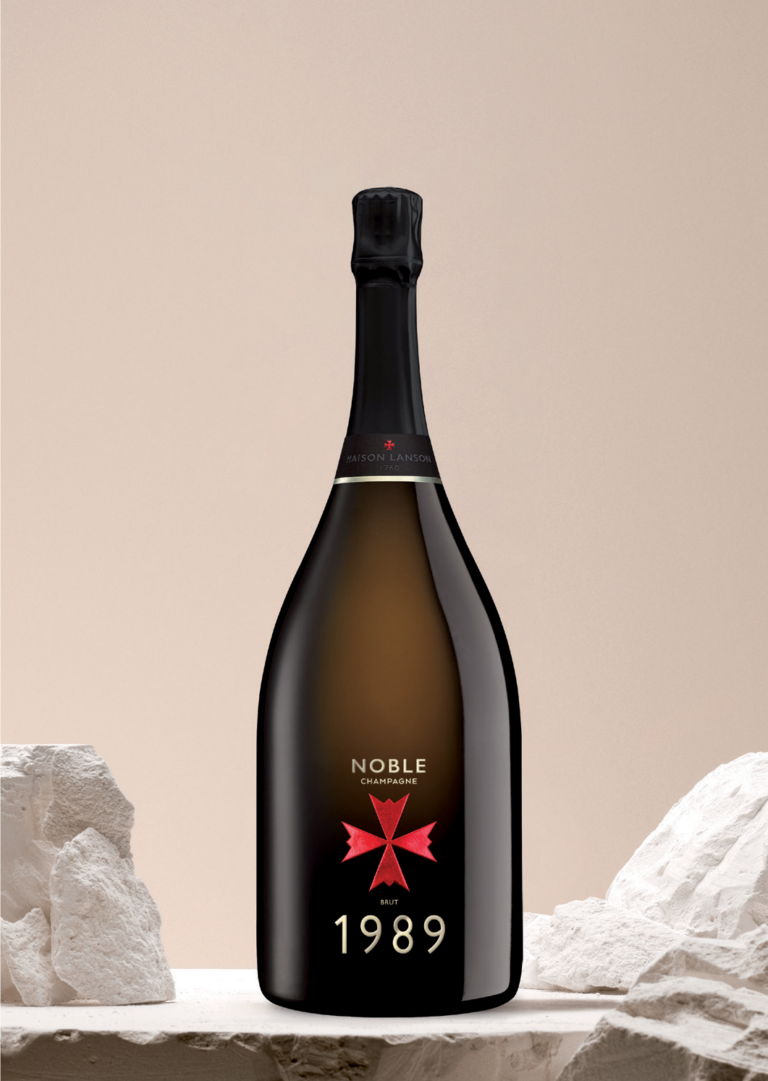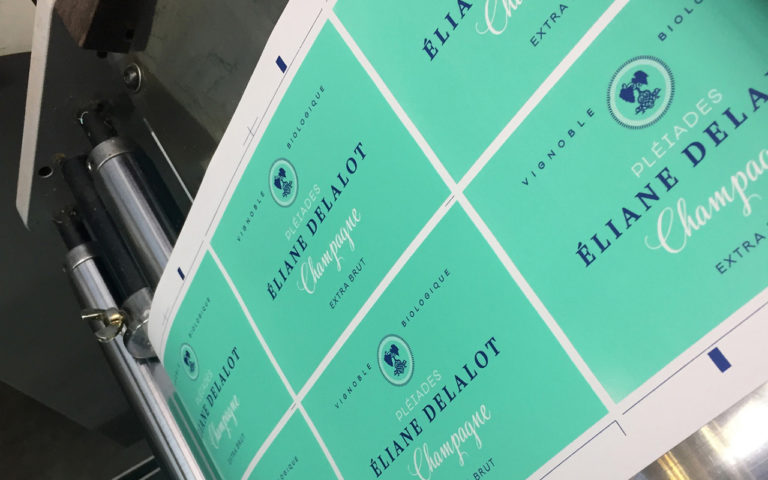To decant or not to decant may be one of the most contentious debates amongst champagne lovers, but it goes without saying that champagne is firstly a wine. Decanted properly, and in the right circumstance, its effervescence can be preserved and spirit awoken. PhD Marcell Kustos has written a piece on the topic in ‘Vine & Bubble’ [read the full article here]

DECANTING THE CHAMPAGNE ?
I prefer to decant most wines, both the old and well-aged. It is a sign of respect for the old wine and that you show confidence and expectation in the young wine. Decanting an old wine, just before serving, helps to ensure that the wine’s clarity and brilliance are not overshadowed by any ripening that may have developed over time. Decanting a young wine several hours before serving creates opportunities for the wine to blossom and give the appearance of its potential. The wine will unwittingly end up at a stage in its development that would normally take a couple of years for it to achieve.
Many other wines also perform well from being decanted. This means pouring the wine from a bottle into a carafe. The decanting is part of the appreciated spectacle that takes place in a restaurant. A good rule of thumb, however, is to always ask the guest if you are allowed to decant the wine. In the case of decanting champagne, many people raise their eyebrows in skepticism. I understand them but let me explain my thoughts. From a wine point of view, decanting has primarily two purposes:
Subscribe for 5.9€ a month for full access to the Tasting Library, exclusive articles, videos events and more





